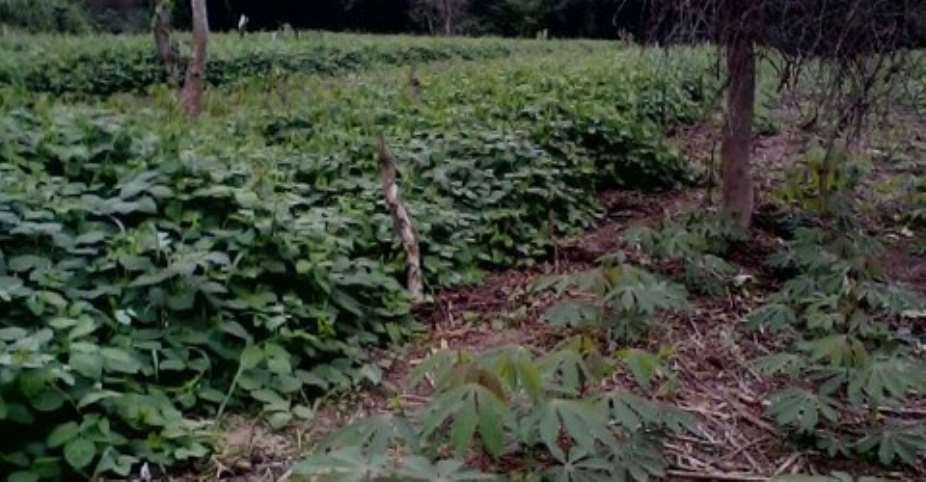Ghanaian smallholder farmers can now access a technology which has the potential to arrest the declining soil fertility confronting them in food production.
The Soil Research Institute (SRI) of the Council for Scientific and Industrial Research (CSIR) has introduced a cassava-cowpea strip intercropping system to improve soil health for sustainable crop productivity.
Several farming communities in the Ashanti, Brong Ahafo and Western regions are currently accessing the technology.
“All together by the 3rd year, we're looking at 50 thousand farmers to be exposed to this technology and we want it to be sustained”, Project Manager, Dr. Edward Yeboah told Luv Biz Report at a farmers' field day at Wiowso in the Ahafo Ano South District of Ashanti.
Over 15,000 farmers have so far been reached within the 2nd year of the project.
Cocoyam, cassava and yam provide food security to most Ghanaian families – cassava is the dominant crop because it can be processed as 'gari' and stored for a longer period.
However, cassava yield has been as low as five tonnes per hectare and as high as 12 tonnes per hectare, whilst yield for cowpea has also been as low as 0.8 tons per hectare.
The strip inter-cropping and rotation technology is a system where two or more crops are grown simultaneously in different strips to increase productivity, enhance soil health and improve farm income.
“You can have three seasons of cowpea until the cassava is fully matured for 12 months and you harvest and then rotate… with this integrated soil fertility management option that we're promoting, you can move the cowpea to as high as 2.4 tons per hectare and you can also have the cassava in the range of 40-50 tons per hectare”, explained Dr. Yeboah.
The system increases monetary returns of 50 percent to the farmer and it is already impacting positively on the cassava processing industry in the Ahafo Ano district.
According to Asamoah Kyeremeh, an Agric Extension Officer, two gari processing plants in the district which were shut as a result of challenges in accessing raw materials have now been activated.
He stated that the interest of farmers in planting cassava and cowpea has been whipped up with the supply of improved early maturing planting materials.
The technology dissemination is funded by the Alliance for a Green Revolution in Africa (AGRA).
“As far as AGRA is concerned, we're committed in that these technologies are really enhanced through further investments”, said Dr. Marie Rarieya of AGRA's Soil Health Program.
Story by Kofi Adu Domfeh/Luv Fm/Ghana





 4,300 Liberians at Buduburam Refugee Camp to return home
4,300 Liberians at Buduburam Refugee Camp to return home
 Two dead in premix fuel depot explosion at Essikado-Ketan
Two dead in premix fuel depot explosion at Essikado-Ketan
 Driver of President Akufo-Addo convoy SUV dies in road crash
Driver of President Akufo-Addo convoy SUV dies in road crash
 Akufo-Addo's convoy in fatal crash
Akufo-Addo's convoy in fatal crash
 Mepe flood victims still in tents 8months after Akosombo Dam spillage
Mepe flood victims still in tents 8months after Akosombo Dam spillage
 Kpemka’s appointment as Deputy BOST MD is unconstitutional – Kwabena Donkor
Kpemka’s appointment as Deputy BOST MD is unconstitutional – Kwabena Donkor
 Voter registration: Two Togolese Nationals arrested in Buem for attempting to re...
Voter registration: Two Togolese Nationals arrested in Buem for attempting to re...
 DR Congo thwarts Kinshasa 'coup attempt': army
DR Congo thwarts Kinshasa 'coup attempt': army
 Media has made good progress in Ghana — Frema Opare
Media has made good progress in Ghana — Frema Opare
 Election 2024: NDC pledges to scrap betting tax, targets 80% youth support
Election 2024: NDC pledges to scrap betting tax, targets 80% youth support
